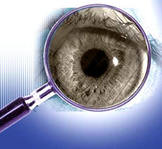All homeowners are welcome to the General Session Meetings.
| April 28, 2016 General Session Agenda |
| April 28, 2016 Executive Session Agenda |
|
Please see the attachment below for your copy of the April 28, 2016 General & Executive Session meeting agendas. They will also be posted in the common area at the bulletin board near the pool entry as per Civil Code. All homeowners are welcome to the General Session Meetings.
 Saturday, April 23, 2016 From 8 a.m. to 2 p.m. Chaparral High School 27215 Nicolas Road FOR TEMECULA RESIDENTS ONLY! ID REQUIRED. The City of Temecula and CR&R are sponsoring a program to help you dispose of dispose of household waste and large miscellaneous debris that can't be placed in your trash bins. We will accept the following items: Large Bulky Items Green Waste Motor Oil Anti-Freeze E-Waste (Household Electronics) Car Batteries (two per resident, per visit) Small (empty) Gas Operated Equipment Unfortunately, we cannot accept the following items: Household Batteries Chemicals Empty Drums Fluorescent Light Bulbs Any Type of Paint Pesticides Thermostats Solvents/Gasoline Sharps/Needles Tires Other Hazardous Waste For more information please visit the City of Temecula website (www.cityoftemecula.org) and type in keyword: "clean-up" or contact the Community Development Department at (951) 694-6400 or CR&R at (800) 755-8112  The correct address and payee to mail your assessment payment is: Rancho Highlands Community Association/Payment Processing PO Box 52982 Phoenix, AZ 85072-2982 The old US Bank PO Box in Temecula has now been closed and any payments that are sent to the Temecula PO Box will be returned by the Post Office. If you use an online bill pay through your bank or credit union, please log onto your account today and verify that your payments are being sent to the Phoenix address and that checks are made payable to your association. Thank you!  Many residents are increasingly concerned about the threat of terrorism. That's why the Department of Homeland Security (DHS) wants you to be aware of its initiative, "If You See Something, Say Something." While we try to avoid paranoia, we owe it to our families, friends, neighbors and community to be vigilant - and do the right thing when something does seem amiss. According to the DHS, issues that may warrant contacting local law enforcement authorities include: - Behavior that could indicate a terrorist act or planning a terrorism-related crime. - Unusual situations might include a vehicle that is parked in an odd location, a package or luggage that is unattended and an open window or door that is usually closed. - Someone who pays unusual attention to facilities or buildings beyond a casual or professional interest. This includes extended loitering without explanation (particularly in concealed locations); unusual, repeated, and/or prolonged observation of a building; taking notes or measurements; counting paces; sketching floor plans, etc. Importantly, most of these activities could be perfectly innocent, so you should let law enforcement professionals determine whether the behavior warrants investigation. As always, call 911 in an emergency, but contact your local law enforcement agency to report suspicious activity. When you call, describe specifically what you observed, who or what you saw, when you saw it, where it occurred and why it's suspicious. DHS emphasizes that Americans must respect citizens' privacy, civil rights and civil liberties by focusing on behavior rather than appearance. Race, ethnicity, and/or religious affiliation are not suspicious. The public should only report suspicious behavior and situations. |
Community Updates
Archives
January 2022
|
||||||||||||